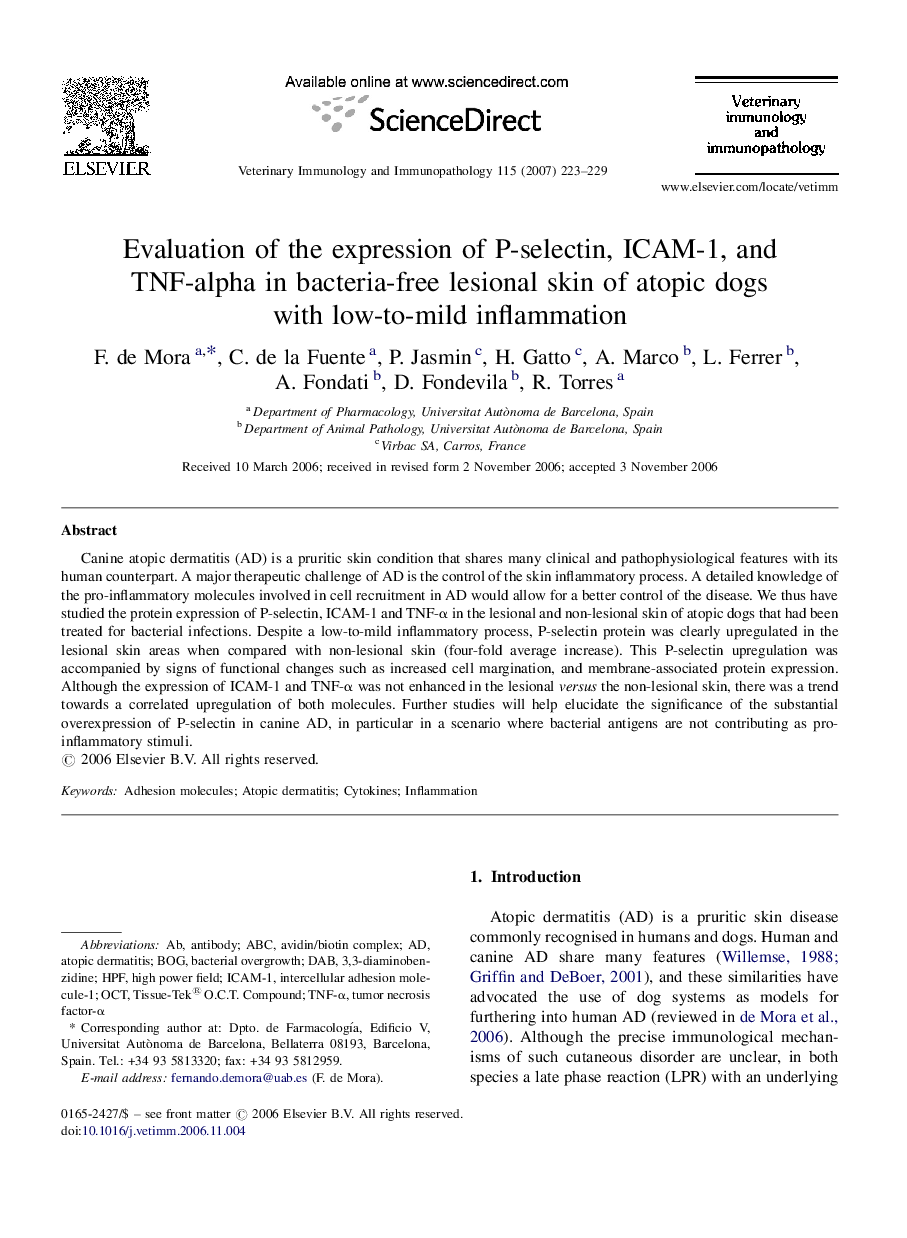| Article ID | Journal | Published Year | Pages | File Type |
|---|---|---|---|---|
| 2463310 | Veterinary Immunology and Immunopathology | 2007 | 7 Pages |
Canine atopic dermatitis (AD) is a pruritic skin condition that shares many clinical and pathophysiological features with its human counterpart. A major therapeutic challenge of AD is the control of the skin inflammatory process. A detailed knowledge of the pro-inflammatory molecules involved in cell recruitment in AD would allow for a better control of the disease. We thus have studied the protein expression of P-selectin, ICAM-1 and TNF-α in the lesional and non-lesional skin of atopic dogs that had been treated for bacterial infections. Despite a low-to-mild inflammatory process, P-selectin protein was clearly upregulated in the lesional skin areas when compared with non-lesional skin (four-fold average increase). This P-selectin upregulation was accompanied by signs of functional changes such as increased cell margination, and membrane-associated protein expression. Although the expression of ICAM-1 and TNF-α was not enhanced in the lesional versus the non-lesional skin, there was a trend towards a correlated upregulation of both molecules. Further studies will help elucidate the significance of the substantial overexpression of P-selectin in canine AD, in particular in a scenario where bacterial antigens are not contributing as pro-inflammatory stimuli.
